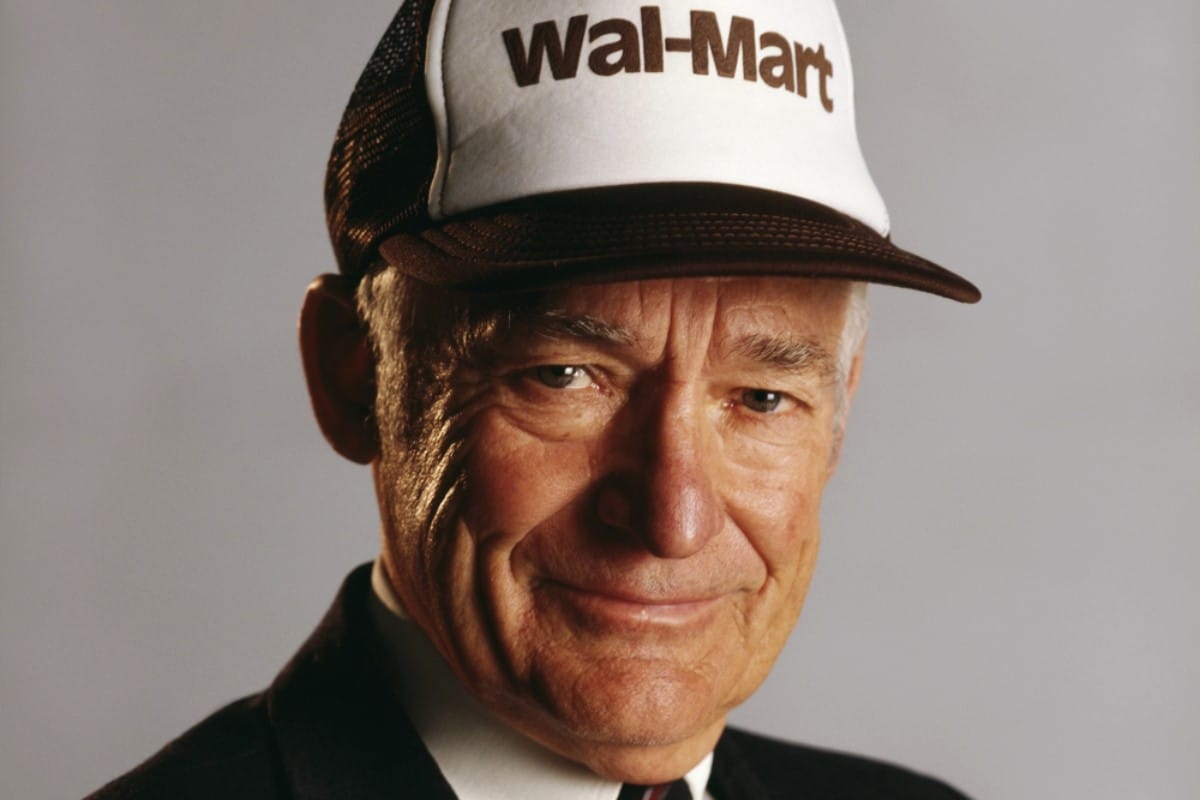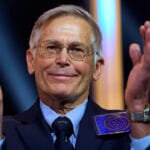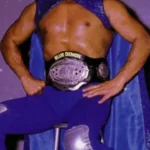Sam Walton: The Reluctant Revolutionary. From small-town beginnings to retail dominance, Sam Walton’s simple yet radical ideas reshaped how the world shops. But who was the man behind the blue vest? Get ready to meet Sam Walton, the mastermind behind Walmart, the massive retail powerhouse that’s spread its wings across the globe. From his modest beginnings to his groundbreaking ideas that set the retail world upside down, we’ll delve into the details that made Walton and Walmart the icons they are today. So, grab a front-row seat and let’s embark on a journey through the world of Sam Moore Walton and Walmart’s enduring legacy.
The Roots of a Retail Visionary
Sam Walton, born in 1918 in Kingfisher, Oklahoma, wasn’t always about massive stores and unbeatable prices. His early life during the Great Depression likely instilled in him the values of hard work, thrift, and resourcefulness. Even as a young boy, he showed signs of the leadership that would later define his career. Earning the rank of Eagle Scout at age 13 is suggestive of his early discipline and commitment to service.
Education, War, and Early Business:
Walton didn’t just jump into business. He first earned an economics degree from the University of Missouri in 1940, which probably provided a foundation for understanding business and finance. Perhaps this is where the seeds of his low-price strategy were sown.
World War II interrupted his trajectory, and Walton served as a captain in the U.S. Army Intelligence Corps, where he oversaw security at aircraft plants and prisoner-of-war camps. This experience likely honed his leadership skills. managing people, and his ability to think strategically under pressure—all qualities that would serve him well in the world of retail.
After the war, Walton’s entrepreneurial journey began in 1945 with a Ben Franklin variety store franchise in Newport, Arkansas. This experience may have been his testing ground, where he gained valuable insights into retail operations and customer preferences. He likely learned firsthand what it took to run a successful business, from managing inventory to building relationships with customers.
The Walmart Revolution Begins
1962 marked a pivotal year. Walton, driven by a vision of offering a wider selection of goods at discounted prices, opened the first Walmart store in Rogers, Arkansas on July 2nd. He aimed to cater to underserved rural communities, a strategy that would prove incredibly successful.
The “Everyday Low Prices” Strategy:
This wasn’t just a slogan but a core principle deeply ingrained in the company’s operations. Walton believed in passing savings directly to the customer, building a loyal following based on value. He understood that to make this work, he needed to keep costs down. He ran a tight ship, but he also believed in sharing the success with his employees. Profit-sharing programs and the “Sundown Rule,” which encouraged quick decision-making, helped create a loyal and efficient workforce.
Empowering Employees, Empowering the Business:
Walton recognized that employee satisfaction was key to customer satisfaction. He introduced profit-sharing programs, giving employees a stake in the company’s success. The “Sundown Rule,” another of his innovations, emphasized responding to employee and customer inquiries by the end of each day, fostering a culture of responsiveness and respect.
Sam Walton: The Man Behind the Billions
Despite his incredible wealth, Walton remained famously down-to-earth. He was known for driving an old pickup truck and living a relatively simple life, even after achieving billionaire status. This suggests that he was never in it for the money alone, but for the challenge and satisfaction of building something great. Family was paramount to him, as was his love for the outdoors. It’s a reminder that even the most successful people have lives and passions outside of work.
A Legacy of Innovation and Impact
Walmart Today: A Global Retail Powerhouse:
Walmart is now the world’s largest retailer, with over 10,500 stores in 24 countries. Walton’s vision, once confined to a single store in Arkansas, had blossomed into a global phenomenon.
Lasting Impact on Retail:
Walton’s emphasis on low prices, supply chain efficiency, and customer service revolutionized the retail landscape, influencing competitors and shaping consumer expectations. His relentless focus on efficiency, from the stockroom to the sales floor, forced the entire industry to adapt or be left behind.
Recognition and Enduring Influence:
Sam Walton’s achievements didn’t go unnoticed. In 1992, he received the Presidential Medal of Freedom, one of the highest honors a civilian can receive in the U.S. This was a testament to his significant impact on American business and society.
Beyond the Blue Vest: Exploring the Complexities
While Walton’s story is one of remarkable success, it’s also important to acknowledge the criticisms that have been leveled against Walmart’s practices. Concerns have been raised about the company’s impact on small businesses, labor practices, and community dynamics.
The Future of the Walton Legacy
As Walmart navigates an evolving retail landscape shaped by e-commerce, sustainability concerns, and changing consumer habits, it will be interesting to see how Sam Walton’s principles continue to guide the company he built. Will his focus on low prices and customer service be enough to ensure Walmart’s dominance in the decades to come, or will the company need to adapt its strategy to meet the challenges of a new era?
To learn the most interesting facts about Blue Demon, visit our page facts about Blue Demon. If you’re curious about Aryabhata, be sure to check out our page with mind blowing facts about Aryabhata. Lastly, for some fascinating facts about Jerry Lawler, visit our page dedicated to him.
















2 thoughts on “Facts About Sam Moore Walton: The Man, the Vision, the Walmart Legacy”
Comments are closed.